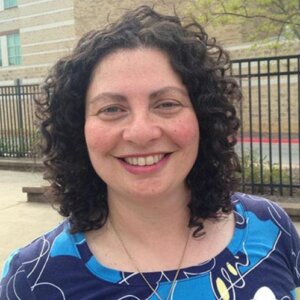A Prayer of One’s Own
A Jewish Woman’s Prayer Book
By Aliza Lavie
Spiegel & Grau, 448 pages, $35.
God speaks to Jewish women as well as to Jewish men. God loves Jewish women as well as God loves Jewish men. From biblical times to the present, there have been prayers that speak to this love, answer this call and voice concerns of their own, but not usually in mainstream liturgy. Usually uttered outside the synagogue, and often hidden from public view, these prayers speak to the inner desires and struggles of Jewish women.
In “A Jewish Woman’s Prayer Book,” Aliza Lavie has sought to capture these prayers. Lavie, a religious woman who is a lecturer at Israel’s Bar-Ilan University and a television personality, was struck several years ago by the inability of the traditional Yom Kippur liturgy to speak to the pain of a woman who had lost both a mother and a child in a terrorist attack. She set off to find those words, and discovered a world of prayer that stretched back over time and across many lands. Originally published in Hebrew, the collection became a best-seller in Israel when it was published in 2005, appealing to religious and secular Jews alike.
The English edition, though slightly less voluminous than the original Hebrew, is a welcome addition to the world of Jewish prayer. Laid out beautifully, the book invites the use and discovery of many prayers that are not easily found elsewhere. It has the look and feel of many Jewish prayer books, with heavily cut paper and English and Hebrew versions of prayers set out side by side. Helpful commentary is conveniently placed at the bottom of every page, in a way that adds context and insight but does not distract from the prayers themselves.
There is poetry and familiarity with the Divine in many of these prayers. A 15th-century prayer from the Iberian Peninsula not only helps to frame the mundane work of making candles as a holy act, but also speaks across the generations with the request that God “… watch over me and protect me, and grant me that which I know not how to ask.…” In 2002, Dalia Wertheim-Yohanan wrote a Yizkor prayer for a close friend whose son, Matanya, was killed in battle in Israel. “My God —You, Who created and formed man’s heart and his soul, You know how precious a child is to his father and mother… I shall not try to hold back my pain.” God is not a distant father king looking down from above, but rather an intimate companion who understands us, one with whom secrets and pain can be shared.
Though representing many voices in this collection, Lavie stays close to the traditional images and roles assigned to Jewish women. Her inclusion of medieval alternatives to the traditional morning blessings in which men thank God for not creating them as women, and in which women give thanks for being created “according to his will,” reminds us that the desire for Jewish women to be recognized as fully human in their own right is more than just a modern wish. Yet, in actively restricting the volume to prayers composed either in the pre-modern period or by contemporary writers in the Orthodox and traditional Mizrachi communities, Lavie has left out those who would question the traditional roles still further. And while it is understandable to include prayers composed by male rabbis in earlier eras, those by contemporary male rabbis seem oddly out of place and paternalistic in a time when so many Jewish women are Jewishly educated and articulate. Jewish women looking for prayers to fortify when taking actions not endorsed by the traditional rabbinic establishment — such as choosing to leave an abusive relationship, or assuming a leadership role in the Jewish community — will find no formula among these pages, but perhaps they will be inspired to write their own.
Rabbi Ruth Abusch-Magder is a scholar and teacher with a specialty in Jewish women’s history, and the director of continuing alumni education at Hebrew Union College-Jewish Institute of Religion.

















